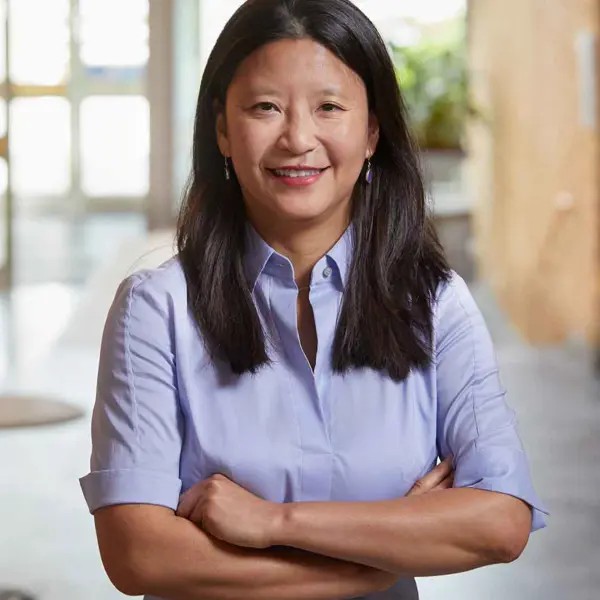
The UN’s Intergovernmental Panel on Climate Change (IPCC) has begun work on its Seventh Assessment Report (AR7), one of the world’s most comprehensive scientific syntheses on climate change. Chalmers researcher Daniel Johansson has been appointed Lead Author of Chapter 3: Projected Futures in the Context of Sustainable Development and Climate Change and is now part of an international expert group. Here, he shares what the role entails, the chapter’s key focus areas, and what he hopes to contribute.
“It’s an honor and a great opportunity to contribute to the IPCC’s upcoming reports,” says Daniel Johansson, Associate Professor at the Department of Physical Resource Theory at Chalmers University of Technology.
Johansson has long been engaged in climate-related research, particularly using models that integrate theories and methods from climate science, energy systems modeling, and economics.
A total of 664 experts have been selected for the next major assessment report — ten of them from Sweden.
“It’s from this interdisciplinary background that I hope to bring valuable insight. More specifically, I aim to contribute my research on the importance of reducing greenhouse gases beyond carbon dioxide, the valuation of climate impacts and mitigation costs over time, and the interpretation and communication of uncertainties in models to support decision-making.”
The AR7 cycle includes reports from three working groups, a synthesis report, and a special report on climate change and cities—scheduled for release in 2027—along with two methodological reports for emissions accounting:
- Working Group I addresses the physical science basis and future climate scenarios.
- Working Group II analyzes impacts, vulnerabilities, and adaptation options.
- Working Group III focuses on climate mitigation strategies.
“My chapter centers on future development pathways and scenarios, and how these relate to achieving the goals of the Paris Agreement and broader aspects of sustainable development. It will include analyses using various models and socio-economic scenarios, examining how they relate to issues such as equity, cost, and technological development,” Johansson explains.
A key element is understanding the interplay between climate action and other societal goals—such as welfare, energy access, employment, and poverty reduction. The chapter will also assess the technical, economic, and institutional changes required to enable a transition aligned with the Paris Agreement, as well as the costs and benefits associated with different development trajectories.
Working in a Global Scientific Collaboration
What is it like to work in such a large, international author group?
“This is my first time participating in the IPCC, though I’ve been part of similar collaborations in other contexts. Overall, it’s a mix of being educational, exciting, challenging, and occasionally frustrating. It’s important to find your role and understand how to contribute effectively. Since this is my first time with the IPCC, I don’t yet know exactly how the process will unfold—I haven’t received much information yet.”
The work will be coordinated through a series of Lead Author Meetings, where contributors from the various working groups convene. The first meeting is scheduled to take place in Paris at the beginning of December.
Who Are the Reports For?
“The IPCC reports are primarily intended for national and international policymakers. They are also crucial for researchers, as they provide a consolidated and up-to-date assessment of the current state of knowledge. Moreover, the reports are frequently used by advocacy groups, businesses, and the media to better understand climate science, its consequences, and potential solutions,” says Johansson.
“The language of the reports must be neutral and fact-based—scientifically robust, yet accessible to those who are not experts in the specific fields being addressed.”
The Role of the Report in Global Climate Efforts
What is your view on the role of the IPCC report in global climate action?
“Taken together, the three main reports—on the scientific basis, on climate impacts and adaptation, and on mitigation options—form a central foundation for global climate policy. They provide essential input on how rapidly emissions must decline at national, regional, and global levels to meet climate targets. They also address the consequences of these reductions, how the costs can be distributed, and issues like compensation for unavoidable climate damages—referred to as ‘Loss and Damage’ in UNFCCC terminology.”
Finding Hope Amidst the Challenges
Despite the seriousness of the climate crisis, is there anything that gives you hope—and that you would like to share with others?
“There is certainly a lot of darkness in the world right now, and climate issues have somewhat fallen out of focus. But at the same time, technological progress is accelerating. The costs of solar and wind power, as well as batteries, are dropping significantly and their use is increasing rapidly. There is also a growing global awareness of the climate crisis, and the recognition that we must act is spreading.”
“I believe that this increasing awareness—that climate change and other sustainability issues are vital to our future well-being—can enable a successful transition. However, it won’t be a simple or linear path. Obstacles will arise, difficult trade-offs must be navigated, and smart policy solutions are needed to support those who may be adversely affected by the transition. Otherwise, opposition could grow strong,” concludes Daniel Johansson.
Related
Daniels Johansson – Chalmers research
Swedish authors of upcoming climate report (AR7)
IPCC – Seventh Assessment Report
Paris Agreement
- Professor, Physical Resource Theory, Space, Earth and Environment




